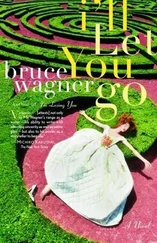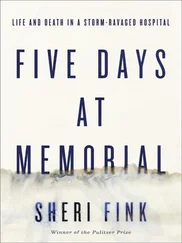Chess had been online reading about useless surgical amphitheater interventions. Like the lady with bullet-proof pain whose bones kept crumbling; the drug she took cost $600,000 a year because her disease was so rare. Her joints broke like teenage hearts and they kept cutting her — the doctors were addicted — until she didn’t want to live. Every putz and putter on the golf course had had a knee or back torpedoed — the drill and scalpel were supposed to be the last resort but greedy Hippocrats could never get enough. One guy’s calcified endoskeleton was strangling a bundle of nerve-endings and the sonofabitch was still crawling to the bathroom 6 months after being carved. His blog said he was planning “death by cop”—get loaded, get naked, and run into traffic waving a gun. The Yahoo! watchdogs were probably gonna shut him down any day now. Could be too late.
When they called him in, the panic momentarily receded. The physician was a brawny, handsome guy of about 60 who looked like he could fix anything. They scheduled the MRI and Chess voiced some of his fears. “You have a very active imagination.” He told the new patient not to worry, he’d dealt with far worse. Chess asked if in the meantime it was OK to get acupuncture and the doc said, “Sure, if it helps.” What about a massage? “Nothing too vigorous.” He even made one of those “happy ending” jokes but somehow it didn’t grate. He gave him an Rx for sleeping pills, anti-inflammatories, muscle relaxants — and more painkillers. Percocet.
“And stay off the Internet,” the doctor cautioned, smiling again as he left the room. “Sometimes too much information is not a good thing.”
Chess put on his shirt.
SHE watched the DVD that Nigel, “the travel gal,” gave her — a very professional presentation, very theatrical, with the same high quality of those Mystery! shows on PBS. It starred a familiar-looking Indian actor (hosting). He was probably quite famous.
Marjorie was thrilled to see the hotel again. Sure, the interior had been modernized but plus ça change, as her daddy used to say; it seemed to have the exact same feeling. She remembered the name “Tata,” they were like the Trumps of India, or the Rockefellers, actually, and still very much entrenched. (The Tatas were Zoroastrians, which the Encyclopaedia Britannica said was one of the oldest religions.) The family owned the Taj chain and even manufactured cars and trucks that bore their name. How divine it would be to rattle around in one’s very own Tata! The film was interspersed with black-and-white stills showing how “the palace” looked in the 20s, 30s, and 40s — and how it looked in the early 50s, when she made her sojourn as a young girl.
Her mother had died of blood poisoning the year before and Dad thought it would be good to draw Marjorie out, salving the wound of premature loss. His idea, she thought in retrospect, was to draw them both out; such exodus being as essential to his emotional stability as to her own recovery and growth, a grandly dramatic gesture, the bold, father-daughter gesture of a lifetime, which she could never repay. (Revisiting their idyll was as close as she would come; sort of “interest” on the loan.) Marj knew he’d been to India twice before to buy fabric for the clothing and knickknack shop her parents owned in Massachusetts; the quality of Bombay silk was astonishingly good, the tailors like none others on Earth. In America, he could resell garments at a 10-fold markup. It was actually his wife who had the idea, and because he took Marj to places where the married couple had 1st shared so many intimate joys of discovery, the trip with his daughter was tinged with heartbreak. For Marj, though, it was the most romantic thing in the world. Now she knew better, but at the time, a widower’s frisson of pain and pleasure never crossed her mind: as they toured in private cars, he’d remark, “This is where your mother loved to people-watch,” “This is where Mom had her tea and watched the ships,” “This is the museum she adored,” “This is where your mother took her shoes off and prayed along with native worshipers.”
The trip had such a dreamy quality that she’d begun to think she had imagined it all, until she saw the marvelous little film. Bless dear Nigel for that! (She had lived with it in her head for so long.) Not only did the clangorous sounds and smells of India waft back to her but those of her father as well, the wind-chime laugh and the clearing of his throat, the cigar smoke that permeated his woolly, pleated three-piece, and clung like the most comforting cologne, the size of his hands and look of his fingers (a slight indentation on one of the nails), the kindness and almost mystical sadness in and around the eyes, the punctiliousness of his dress, his unadumbrated curiosity, and thirst for experience, his solicitous manner toward others — he never turned a beggar down, marveling in a most uncynical way at the ingenuity of their “coin extraction techniques”—but mostly, his tenderness toward her, his dearest child, green apple of his eye, sassy replica of departed wife, his sugarplum girl, his Marjorie Morningstar, one day to become Marjorie Rausch Herlihy née Donovan. From all the terrible things she heard on the news, she was beginning to think her dad was the best who’d ever lived, or that maybe fathers were just different now. She even remembered clutching him close when the driver took them to the section of town, high on a hill, where Parsis — Zoroastrians! — brought their dead to an open room to be devoured by vultures. (It was impossible to see anything though, but the very idea! ) She thought of that poor boy, suddenly bereft of Riki, dear, innocent Riki, and the tears welled up. Soon she would have to go to the wretched store, that claptrap mausoleum with its soggy, decaying shrines and relics, to find him.
THE doorbell rang. It was a 30ish man in a stylish suit.
“Mrs Herlihy?”
She blanched.
Was it bad news about Joan or Chester?
“I’m Lucas Weyerhauser. Am I catching you at a bad time?”
“I don’t think so!” she said, slightly agitated.
“Good. This is something that’s a lot of fun for me — and I hope it’ll be fun for you! In fact, I know it will. May I come in?”
Instinctively, she closed the door a bit, narrowing the space between them, not to be rude, but to let the man know she was a savvy city dweller, despite her age.
“Well,” she said, with a small smile. “What is it?”
“I completely understand,” he said respectfully. “That’s fine. I can tell you from right here.”
He turned and curtly waved to a fellow in a chauffeur’s uniform who stood beside a dark sedan. On signal, the driver got back in the car.
“You play the lottery, don’t you?”
“Why, yes.”
“Now, how’d I know that?”
He winked. She was at a not-unpleasant-sort of loss.
“Because I work for Mega Millions, in New York, and it’s my business to know. May I?”
She thought the young man was asking to come in again but instead he handed her a vest-pocket card with LUCAS WEYERHAUSER in raised gold letters. Special Programs Division was inscribed below, with an elaborate blue-gold seal, also embossed — the official seal for the State of New York.
“I won’t take too much of your time, Mrs Herlihy. I know this is out of the blue but here’s how it works: the Los Angeles Super Lotto and New York lottery systems — New York’s is ‘Mega Millions’—are sister programs. Just like Cannes and Beverly Hills are sister cities. Not too many people know that Cannes and Beverly Hills are sister cities but it’s an official truth. Now, the joining of East and West Coast lottery systems is something that isn’t generally publicized but is of great and mutual benefit to the infrastructure of both states.” Marj smiled, uncomprehending. “I didn’t mean to make you dizzy! OK: let me put it simpler. For every hundred thousand Super Lotto tickets bought in LA, the state of New York buys, say, a hundred ‘sister’ or ‘mirror’ Mega Millions. What that means is, even if your ticket doesn’t show you to be a winner in Los Angeles, you might be a winner in New York. If you were to win in New York, part of those monies would be used for many, many things — school lunch programs, filling potholes, even buying computers for police and fire stations. The long and short of it is that you, Marjorie Herlihy, just became a hero.”
Читать дальше












